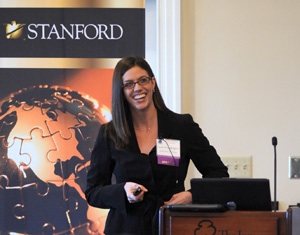A Plano, Texas, man, who has admitted running a fraudulent investment scheme from 2004 through July 2009, will enter his guilty plea before U.S. Magistrate Judge Paul D. Stickney on May 18, 2010, to felony offenses related to that crime, announced U.S. Attorney James T. Jacks of the Northern District of Texas. Brion Gary Randall, 48, has signed documents, filed with the Court, pleading guilty to an Information charging one count of mail fraud  and one count of bank fraud. Each count carries a maximum statutory sentence of 30 years in prison and a $1 million fine.
and one count of bank fraud. Each count carries a maximum statutory sentence of 30 years in prison and a $1 million fine.
According to filed plea documents, Randall worked as an investment advisor from 2004 through July 2009. During part of that time, he operated, and owned in part, 2Randall Consulting Group, LLP and also owned part of Titan Home Theater, LLC, which designed and installed commercial and residential audio/visual systems. According to a complaint filed by the U.S. Securities and Exchange Commission against Randall and 2Randall in August 2009, the Financial Industry Regulatory Authority (FINRA) suspended and fined Randall for improperly exercising discretion in customer accounts without prior written permission. That case is currently pending.
From 2004 through July 2009, Randall raised more than $6 million from 30 investors through a scheme in which he caused persons to invest in a number of short-term loan participation programs, which in fact, did not exist. He used investors’ funds for his own benefit and not for purposes he represented.
For example, Randall represented that he was pooling money in accounts at Chase Bank and AllianceBernstein for investment in a variety of short-term loan participation programs. Randall represented that an investor’s money in 2Randall Consulting’s account at Alliance and Chase was held in a non-taxable escrow account and fully liquid, with the investor able to withdraw his money at any time. He represented that the 2Randall consulting account at AllianceBernstein had a balance ranging from $25 million to $29 million, and that he had also invested millions of dollars of his own money into the accounts.
In reality, however, the Chase Bank and AllianceBernstein accounts were nonexistent. To further the scheme, Randall created and distributed fraudulent documents to investors, including bogus Chase Bank and AllianceBernstein account statements. He also created bogus 2Randall Consulting accounting statements and portfolio summaries. In meetings with some investors, he would display a false and fictitious computer screen shot of either the Chase Bank or AllianceBernstein account which would show the investor’s money on deposit.
Randall also represented to investors that they could invest in short-term loan participations, usually lasting 45 to 90 days and returning a high rate of interest. He sold loan participation programs in 1) Small Business Administration (SBA) loans; 2) Titan Home Theater project completion loans; and 3) loans to acquire real estate in Galveston, Texas.
For the SBA loans, Randall falsely represented to investors that they could participate with 2Randall Consulting in a short-term loan to a local company seeking an SBA loan. Randall represented that the short-term loan would provide sufficient capital to enable the company to obtain the loan at a discounted rate, and once the SBA loan closed, the company would return to 2Randall Consulting and the participating investors the principal plus 10 percent. He represented that the companies receiving the loans were reputable local businesses, including 84 Lumber, General Packaging Corporation, PerotSystems Vent-A-Hood and Richardson Bike Mart, businesses where Randall’s father had an established relationship. Randall represented that participating in an SBA loan participation program was low risk and that an investor could only lose his money if the company declared bankruptcy during the 45-90 day term of the loan. Randall knew that no such SBA loan participation agreements existed.
With regard to the Titan Home Theater project completion loans, Randall represented that investors could participate in short-term loans to Titan enabling it to complete a number of commercial projects, and that upon completion of the projects, Titan would return the principal plus up to a 22% return. Randall falsely represented that Titan was a subcontractor on several commercial projects including projects at Southern Methodist University, the Bush Library and the Dallas Cowboys stadium.
Randall also represented to investors that they could participate in short-term loans enabling him to finalize the acquisition and sale of real estate in Galveston. Randall promised that on closing, he would return the investor’s principal plus a sizeable rate of interest.
As a further part of his fraud, Randall obtained loans from financial institutions by submitting forged signatures and false and fraudulent documents. The plea documents note that Randall obtained five loans, from Bank of America, Texas Capital Bank and Wells Fargo, that all defaulted, causing a total loss to these financial institutions of nearly $875,000.
COMMENTS:
The question that I often get asked in seminars I conduct is: How can someone with reasonable intelligence get caught up in such a scam? Answer: They get caught up in the PIT.
“P” – PROMISE – The first step to falling into a scam (especially a financial scam) is the “promise”!
“I” – The second part of falling into the scam is the – ILLUSION!
“T” – In the PIT the third and last component is TRUST.
Combine the three components and you find victim investors falling into the “PIT” as I call it. When some one promises a 22% return – that PROMISE in and of itself is a warning sign that something is amiss! It almost makes no difference what else might take place, the unreasonable promise of a return is a clear indication that you might be a fraud victim. Funny, however, it seems the more focused someone is on getting something that most people can’t have the greater likelihood they will fall prey to a scam artist.
Every choice has a consequence and in this case Randall will have a long time to think about his fraud and the impact it has and will have on his life and the lives of countless others.
If you’re a victim of Randall’s fraud, I’d appreciate your comments on what took place that got you hooked. Perhaps your comments will help others avoid the consequences of the PIT!
YOUR COMMENTS ARE WELCOME!
 Neil H. MacBride, United States Attorney for the Eastern District of Virginia, and James W. McJunkin, Assistant Director in Charge of the FBI’s Washington Field Office, made the announcement after the plea was accepted by United States District Judge Liam O’Grady.
Neil H. MacBride, United States Attorney for the Eastern District of Virginia, and James W. McJunkin, Assistant Director in Charge of the FBI’s Washington Field Office, made the announcement after the plea was accepted by United States District Judge Liam O’Grady.


 Posted by chuckgallagher
Posted by chuckgallagher 






 obstructed a government proceeding. Appearing before a federal magistrate in Houston on Friday, Pendergest-Holt is accused of making “several affirmative misrepresentations” to SEC investigators who were seeking to learn about a scheme to defraud investors and account-holders of billions of dollars in deposits.
obstructed a government proceeding. Appearing before a federal magistrate in Houston on Friday, Pendergest-Holt is accused of making “several affirmative misrepresentations” to SEC investigators who were seeking to learn about a scheme to defraud investors and account-holders of billions of dollars in deposits.



